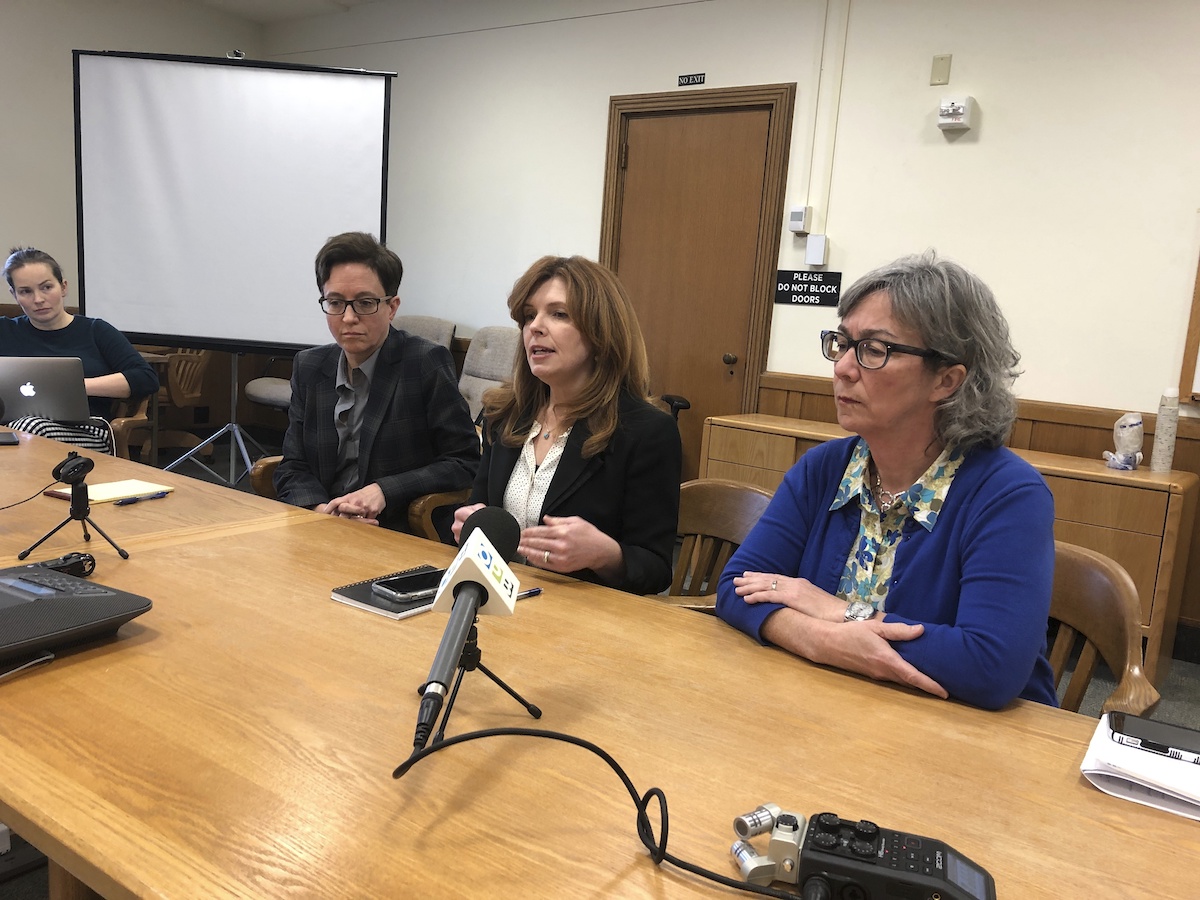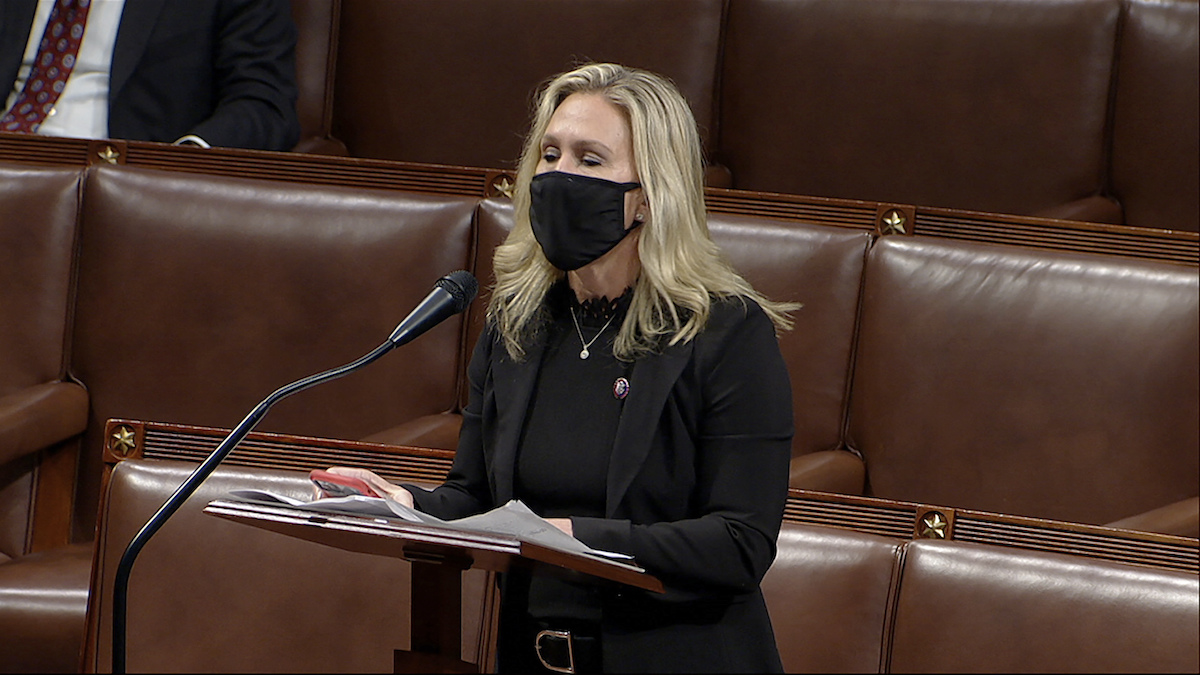While the nation has been enthralled in a passionate debate regarding the future of the Senate filibuster, a similar conversation is unfolding nearby in Salem.
The Oregon legislature has spent 2021 contending with its own challenges borne of minority party obstruction. Best exemplified by the Senate Republican walkouts and the House Republican Caucus’ adamant demand that bills be read in their entirety before their final floor vote, the Oregon GOP has utilized nearly every tool at their disposal to slow the majority agenda in the assembly. While House Minority Leader Christine Drazan (R-Canby) has conceded the reading requirement in exchange for equal Republican representation on the redistricting committee, a conversation still needs to be had about the future of obstructionism in Oregon politics.
Like the national discourse on the Senate filibuster, the conversation in Oregon has similarly boiled itself down to two camps: Democrats who decry these obstructionist tactics as mere representations of an obstinate minority usurping the agenda through procedural technicalities, and Republicans who feel these tools are the only recourse they have left in a state that has effectively shut out conservatives from the legislative conversation. While there are certainly merits to both sides of this debate, a question needs to be asked: who does this obstructionism ultimately serve?
Unemployment among Oregon workers hovered at 6% in March, wildfires have devastated communities and pervasive houselessness continues to impact thousands of Oregonians. The state has seen a net loss of restaurants in the midst of the pandemic and homeowners and renters anxiously await the legislature’s decision on extending the current eviction and foreclosure moratoriums. Police brutality and social inequities still require addressing and solutions for climate change mitigation are long overdue.
Needless to say, Oregonians are counting on their government to pull through for them right now and a deadlocked legislature only serves to exacerbate and extend the arduous experiences people have been forced to contend with as of late. Minority participation in the legislative process is absolutely paramount, but it is abundantly clear the obstructionism we have seen in Oregon is less about compromise and finding common ground, and more about holding the legislative process hostage as retaliation for Oregon voters overwhelmingly choosing Democrats to lead the state.
Per Article IV, Section 19 of the Oregon Constitution, bills are to be read in full before the vote for final passage, unless the rule is suspended by a two-thirds vote. This session, House Republicans have been cleverly withholding their vote to suspend this rule, forcing the House Speaker to dramatically extend floor time to accommodate such a detrimental slow down to the legislative process. Consequently, the imposed reading requirement has drastically impacted the efficacy of the legislature this session, the absurdity exemplified no better than by the forced reading of HB 2111, a 170-page bill renaming the OLCC. Ultimately, it passed 54-1 after hours of wasteful reading time.
In her floor remarks on March 9, Drazan assured the assembly she was open to collaboration during this contentious session. “If you want to be collaborative, I’m open to being collaborative—let’s have that conversation,” Drazan stated. However, in a March 22 letter to House Speaker Tina Kotek (D-Portland), Drazan’s list of demands in exchange for the lifting of the reading requirement reflected a far greater ask than just simple collaboration. The Minority Leader’s requests included the suspension of any legislation deemed “divisive” or “controversial” and did not have bipartisan consensus. Whether or not Drazan’s efforts here were an example of admirable minority advocacy or bad-faith obstructionism, in a democracy it makes little sense for a minority party to have de facto veto power on any legislation they deem controversial.
Nonetheless, the situation has seemingly been resolved for the remainder of the 2021 legislative session. On April 14, House Republicans agreed to waive the bill reading requirement in exchange for equal representation on the House Special Committee on Redistricting. While critics of this deal worry how this may impact the redrawing of Oregon’s congressional districts in light of the recently announced sixth seat the state will gain, only time will tell if this decision was the right choice. However, the question still remains: who has this obstructionism ultimately served? Certainly not the Oregonians in dire need of a functional legislature.
With the 2021 legislative session slated to end on June 28, legislators need to begin considering what the future of Oregon politics ought to look like in 2022 and beyond. Legislative gridlock has been a plague on D.C. politics for far too long, and now it seems as though the Oregon Legislative Assembly is falling into the same, hyper-partisan paradigm we’ve seen reflected in the national discourse.
The party that accuses Democrats of excluding conservative voices from the legislative agenda is now the same party that feels it’s appropriate to deny quorum in the State Senate when they don’t get their way. Oregon Republicans begrudge Democrats for perpetuating an ineffective, bloated government, while now feeling it appropriate to bog down the people’s democratic processes when they lose elections. Needless to say, something has to give. The people of Oregon are depending on it.





